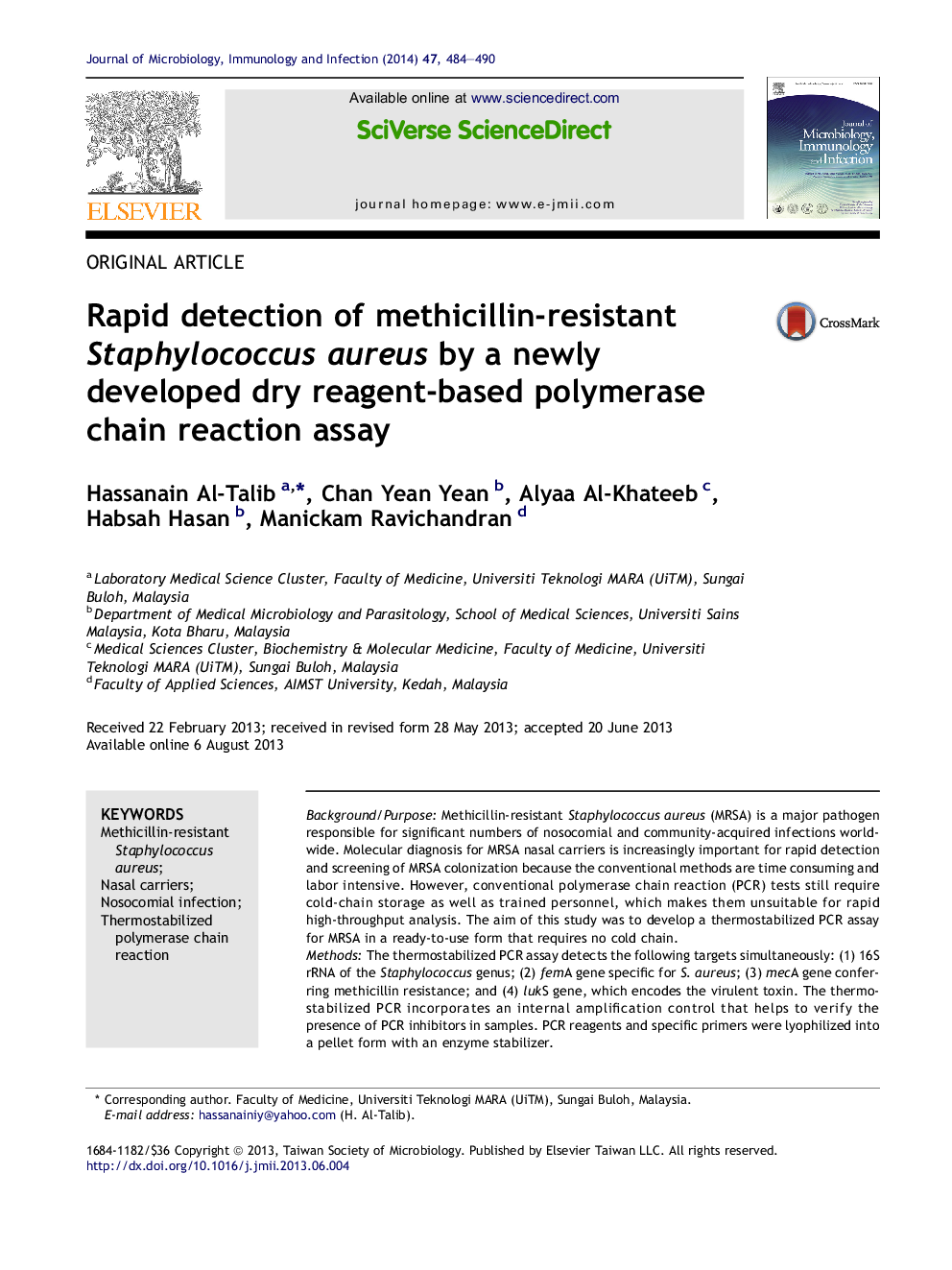| Article ID | Journal | Published Year | Pages | File Type |
|---|---|---|---|---|
| 3377861 | Journal of Microbiology, Immunology and Infection | 2014 | 7 Pages |
Background/PurposeMethicillin-resistant Staphylococcus aureus (MRSA) is a major pathogen responsible for significant numbers of nosocomial and community-acquired infections worldwide. Molecular diagnosis for MRSA nasal carriers is increasingly important for rapid detection and screening of MRSA colonization because the conventional methods are time consuming and labor intensive. However, conventional polymerase chain reaction (PCR) tests still require cold-chain storage as well as trained personnel, which makes them unsuitable for rapid high-throughput analysis. The aim of this study was to develop a thermostabilized PCR assay for MRSA in a ready-to-use form that requires no cold chain.MethodsThe thermostabilized PCR assay detects the following targets simultaneously: (1) 16S rRNA of the Staphylococcus genus; (2) femA gene specific for S. aureus; (3) mecA gene conferring methicillin resistance; and (4) lukS gene, which encodes the virulent toxin. The thermostabilized PCR incorporates an internal amplification control that helps to verify the presence of PCR inhibitors in samples. PCR reagents and specific primers were lyophilized into a pellet form with an enzyme stabilizer.ResultsThe PCR was validated with 235 nasal swabs specimens and was found to be 100% sensitive and specific. The stability of the thermostabilized PCR was evaluated using the Q10 method and it was found to be stable for approximately 6 months at 24°C. The limit of detection of thermostabilized PCR assay was determined by probit regression (95% confidence interval) was 106 colony forming units at the bacterial cell level and 10 ng of DNA at the genomic DNA level, which is comparable with conventional PCR methods.ConclusionA rapid thermostabilized PCR assay that requires minimal pipetting steps and is cold chain-free was developed for detecting MRSA nasal carriers.
